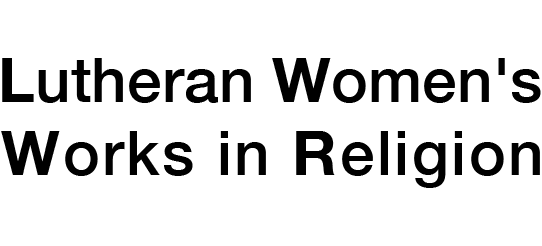Bibliography Author: Barbara Lundblad
WORSHIP AND PREACHING
Barbara Lundblad "Preaching Social Justice from the Lectionary" eds. Ronald J. Allen, Dale Andrews and Dawn Ottoni Wilhelm. Louisville: Westminster John Knox Press 2011This new commentary focuses on preaching justice themes from lectionary texts. Each author deals with five texts: Gospel, Epistle, two Old Testament readings and two psalms. My essays are on the lectionary texts for the same Sunday in the three-year cycle: Proper 18: Years A, B and C.
WORSHIP AND PREACHING
Barbara Lundblad "Preaching Social Justice from the Lectionary" eds. Ronald J. Allen, Dale Andrews and Dawn Ottoni Wilhelm. Louisville, KY: Westminster John Knox Press 2011This new commentary focuses on preaching justice themes from lectionary texts. Each author deals with five texts: Gospel, Epistle, two Old Testament readings and two psalms. My essays are on the lectionary texts for the same Sunday in the three-year cycle: Proper 18: Years A, B and C.
WORSHIP AND PREACHING
Barbara Lundblad "Homiletical Perspectives" In Feasting on the Word: Supplemental Resources. eds. David Bartlett and Barbara Brown Taylor. Louisville, KY: Westminster John Knox Press 2011“Homiletical Perspectives” for Year A: Proper 18 (Exodus 12: 1 – 14), Proper 18 (Psalm 149), and Proper 19 (Exodus 14: 19 – 31) These essays focus on texts that were omitted in the first volumes of Feasting on the Word.
WORSHIP AND PREACHING
Barbara Lundblad "In the Garden of Blessing" In Holiness and the Feminine Spirit: The Art of Janet McKenzie. ed. Susan Perry. Maryknoll, NY: Orbis Books 2009Several Roman Catholic and Protestant women reflect on the paintings of Janet McKenzie. My chapter is on her intriguing work titled “In the Garden of Blessing.”
WORSHIP AND PREACHING
Barbara Lundblad "Homiletical Perspectives" In Feasting on the Word: Year B, Volume 2. eds. David Bartlett and Barbara Brown Taylor. Louisville, KY: Westminster John Knox Press 2008“Homiletical Perspectives” for three Sundays: Ascension (Acts 1: 1 – 11), Sixth Sunday of Easter (Acts 10: 44 – 48), and Seventh Sunday of Easter (Acts 1: 15 – 17, 21 – 26).
WORSHIP AND PREACHING
Barbara Lundblad "Gasping for Breath: Women Listening, Women Telling Stories" In What’s the Shape of Narrative Preaching? Essays in Honor of Eugene Lowry. eds. Mike Graves and David Schlafer. St. Louis, MO: Chalice Press 2008This chapter presses the question: whose narratives are important enough for preaching? Since most biblical texts are about men, including lectionary texts, preachers need to be intentional to hear the voices of women.
WORSHIP AND PREACHING
Barbara Lundblad "Narrative Theory" In New Interpreter’s Bible Handbook of Preaching. ed. Paul Scott Wilson. Nashville, TN: Abingdon Press 2007This is a revised resource with short entries by several authors defining topics related to homiletics.
WORSHIP AND PREACHING
Barbara Lundblad "Feminist Preaching" In New Interpreter’s Bible Handbook of Preaching. ed. Paul Scott Wilson. Nashville, TN: Abingdon Press 2007This is a revised resource with short entries by several authors defining topics related to homiletics.
WORSHIP AND PREACHING
Barbara Lundblad "Down by the Riverside" In Women’s Voices and Visions of the Church: Reflections from North America. eds. Letty Russell and Shannon Clarkson. Geneva: World Council of Churches 2005The author’s sermon, “Down by the Riverside,” is the Prologue to these reflections. The sermon was preached during the North American consultation of the WCC. This sermon is based on the Acts 16 story of Lydia‘s encounter with Paul.
WORSHIP AND PREACHING
Barbara Lundblad "Birthing the Sermon: Women Preachers on Creative Process" In Birthing the Sermon: Women Preachers on Creative Process. ed. Jana Childers. St. Louis, MO: Chalice Press 2001Each woman in this book writes about her process in developing a sermon. My chapter focuses on the sermon as a meeting place between the scripture text and the community text. In addition to the essay there is a sermon entitled “After Emmaus.”

